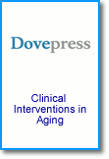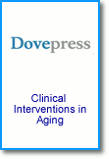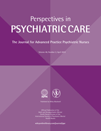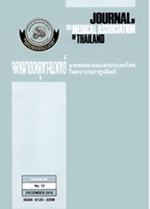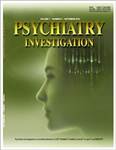Family climate questionnaire (FCQ)
FCQ Family Climate Questionnaire -AO Form.pdf FCQ Family Climate Questionnaire AO Form Thai.pdf
FCQ Family Climate Questionnaire -CA Form.pdf FCQ Family Climate Questionnaire CA Form Thai.pdf
FCQ Family Climate Questionnaire -CA Short Form .pdf
FCQ Family Climate Questionnaire -AO Short Form .pdf
FCQ, developed by Prof. Nahathai Wongpakaran and Prof. Tinakon Wongpakaran, is a 64-item, unidimensional outcome measure designed to assess emotions related to family climate. Eight emotional dimensions; 4 positive and four negative climates are described: Warm-relaxing, Assisting/Helping, Vivacious/ fun/enjoyable, sensitive/empathic for positive emotion, Overinvolved/controlling, Ignoring/ distant, Chaotic/disorganized, and lonesome for negative emotions. Each dimension contains 8 questions with 4 Likert scale choices (1= not at all, 2 = some, 3 = often, 4 = almost always). FCQ separates the questions intended for Father and mother. Negative family climate (NFC) is derived from the parents' combination of negative dimension scores. In contrast, positive family climate (PFC) is derived from the parents' combination of positive dimension scores.
FCQ has two forms: The child and Adolescent (CA) Form and the adult and older adult (AO) Form. Though the contents are the same, the instructions are different. For CA form, it begins with "Being with your parents, please rate how much you feel about each item.", For AO, it begins with "Look back to how you grew up in your family. Please rate how much you feel about each item."
Of 64 questions, 32 are asking about the father, and 32 are about the mother. Among 32 questions, 16 addressed positive climate, and 16 addressed adverse climate. The items have a response format with five options: one means the statement "does not describe me at all," and five means "it describes me very well." The FCQ shows to have reliability and validity.
FCQ has been tested in a sample of 240 university students and shown to be unidimensional. Cronbach's alpha was 0.97 for PFC and was for NFC.
The final version of FCQ (short form) consists of 40 items, 4−Likert scales, ranging from 1 = not at all 2 = some 3 = often and 4 = almost always. The FCQ asks respondents to rate their feelings toward father and mother separately (20 items for father: 20 items for mother). The sample of the FCQ includes, “Mom made me feel warm” and “I feel dad is disorganized”. The total score ranges from the higher score, and higher level of such quality. Among 40 items, 10 items for positive climate with mother (Cronbach = 0.925 ), 10 items for positive climate with father (Cronbach = 0.938 ), 10 items for negative climate with mother (Cronbach = 0.917 ), and 10 items for negative climate with father (Cronbach = 0.915 ). Therefore, we have 20 items for negative climate for both father and mother.
Cronbach's alpha for PFC (20 items; 10 items from father, 10 items from mother) was 0.951; Cronbach's alpha for NFC (20 items; 10 items from father, 10 items from mother) was 0.951.
In term of validity, positive family climate was positively related to resilience ( r = 0.171, p<.05), but negatively related to feeling of failure in work (r = -0.143, p<.05), failure in life (r = -0.145, p<.05), and failure in relationship (r = -0.153, p<.05). Conversely, negative family climate was positively related to interpersonal problem ( r = 0.137, p<.05), failure in life (r = 0.143, p<.05), and failure in relationship (r = 0.132, p<.05).
Coding and scoring
No reversing values for all items were required before summing up. The NFC or PFC scores range from 20 to 80.
Scores are calculated as follows:
Long form (64 items)
1)For positive relationship with mother, the following items are combined
1A- 1(Mom likes to help me (cheer me up)) to 4 (Mom recognizes how I feel)
2A- 1 to 4
3A- 1 to 4
4A- 1 to 4
2)For positive relationship with father, the following items are combined
1B- 1(Dad made me feel warm) to 4 (Dad recognizes how I feel)
2B- 1 to 4
3B- 1 to 4
4B- 1 to 4
3)For negative relationship with mother, the following items are combined
1A- 5(Mom is rigid and inflexible towards me) to 8 (Mom leaves me alone)
2A- 5 to 8
3A- 5 to 8
4A- 5 to 8
4)For negative relationship with father, the following items are combined
1B- 5(Dad is rigid and inflexible towards me) to 8 (Dad leaves me alone)
2B- 5 to 8
3B- 5 to 8
4B- 5 to 8
Positive family climate (PFC) score : 1) and 2) are combined
Negative family climate (NFC) score : 3) and 4) are combined
Short form (20 items)
1)For positive relationship with mother, the following items are combined
1A- 1(Mom made me feel warm) to 5 (Mom is available for me.)
2A- 1(Mom responds to what I need.) to 5 (Mom is seriously concerned about me.)
2)For positive relationship with father, the following items are combined
1B- 1(Dad made me feel warm) to 5 (Dad is available for me.)
2B- 1(Dad responds to what I need.) to 5 (Dad is seriously concerned about me.)
3)For negative relationship with mother, the following items are combined
3A- 1(Mom does not care about me.) to 5 (I feel that mom is near me but not close to me.)
4A- 1(Being with mom, I do not have enough time and space for myself.) to 5(I am lonely even when with mom.)
4)For negative relationship with father, the following items are combined
3B- 1(Dad does not care about me.) to 5 (I feel that dad is near me but not close to me.)
4B- 1(Being with dad, I do not have enough time and space for myself.) to 5(I am lonely even when with dad.)
Positive family climate (PFC) score : 1) and 2) are combined
Negative family climate (NFC) score : 3) and 4) are combined
The last item (overall...) can be used separatedly.
Interpretation
In general, the higher the score of PFC, the more the positive family climate is indicated, whereas the higher the score of NFC, the more the adverse family climate is indicated. However, we could use the distribution of scores based on the respective sample. For example, a high vs. low level of FCQ score or a level of FCQ among the samples could be grouped into three categories: "low" for scores below the 25th percentile, "average" for scores ranging from the 25th to the 75th percentile and "high" for scores above the 75th percentile.
FCQ can also be used separately for the father or mother.
Plase contact Prof. Nahathai Wongpakaran at nahathai.wongpakaran@cmu.ac.th for any queries.
Reference:
Buffering Effect of Perseverance and Meditation on Depression among Medical Students Experiencing Negative Family Climate - PubMed (nih.gov)







